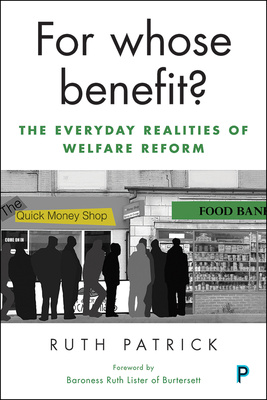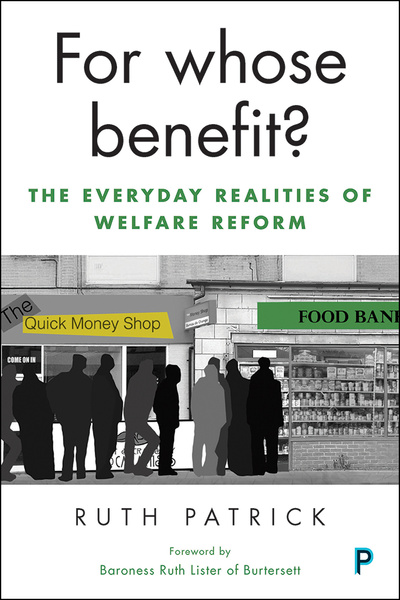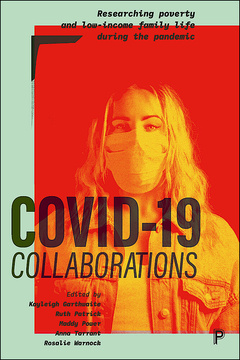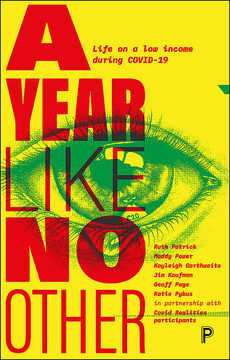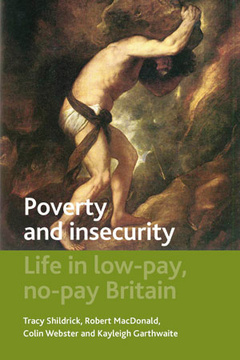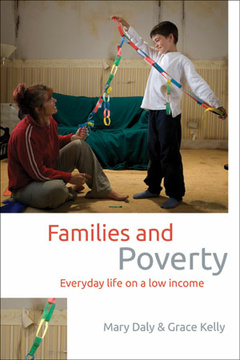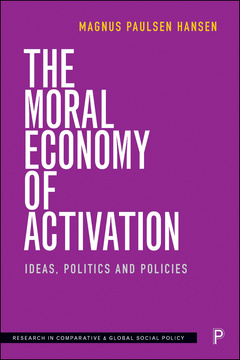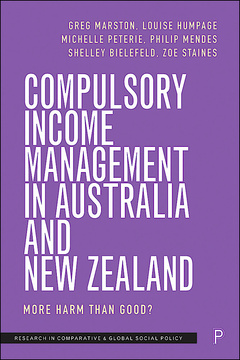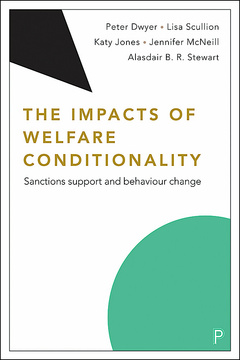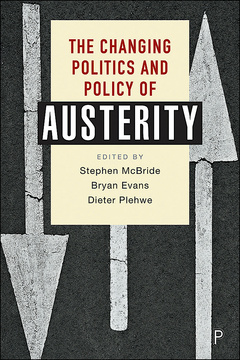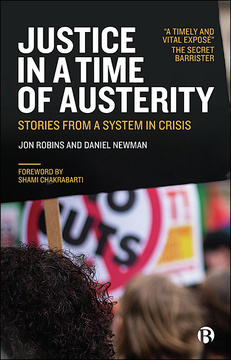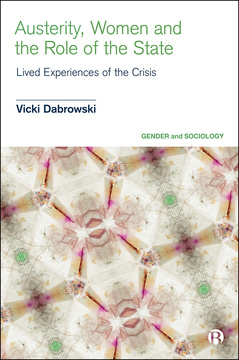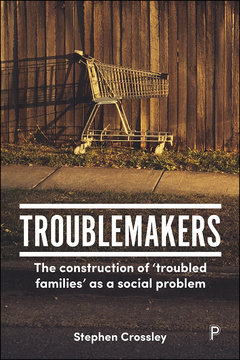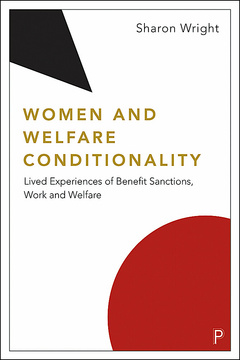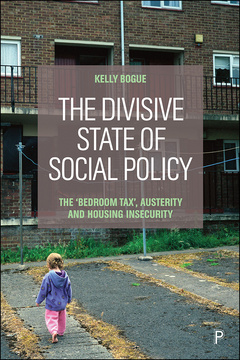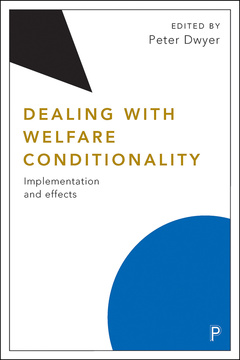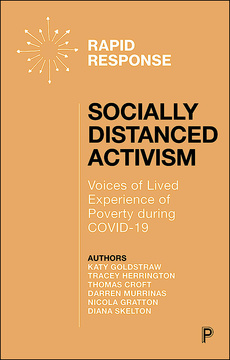Published
Apr 12, 2017Page count
272 pagesISBN
978-1447333487Dimensions
234 x 156 mmImprint
Policy PressPublished
Apr 12, 2017Page count
272 pagesISBN
978-1447333463Dimensions
234 x 156 mmImprint
Policy PressPublished
Apr 12, 2017Page count
272 pagesISBN
978-1447333494Imprint
Policy PressPublished
Apr 12, 2017Page count
272 pagesISBN
978-1447333500Imprint
Policy PressIn the media
'How to treat people on benefits with respect – a lesson from Scotland' in The Guardian
What does day-to-day life involve for those who receive out-of-work benefits? Is the political focus on moving people from ‘welfare’ and into work the right one? And do mainstream political and media accounts of the ‘problem’ of ‘welfare’ accurately reflect lived realities?
For whose benefit? The everyday realities of welfare reform explores these questions by talking to those directly affected by recent reforms. Ruth Patrick interviewed single parents, disabled people and young jobseekers on benefits repeatedly over five years to find out how they experienced the rights and responsibilities of citizenship, and whether the welfare state still offers meaningful protection and security in times of need. She reflects on the mismatch between the portrayal of ‘welfare’ and everyday experiences, and the consequences of this for the UK’s ongoing welfare reform programme.
Exploring issues including the meaning of dependency, the impact of benefit sanctions and the reach of benefits stigma, this important book makes a timely contribution to ongoing debates about the efficacy and ethics of welfare reform.
“We must hope that the designers and implementers of future reforms read this book and hear the voices it puts forward.” Poverty magazine
"Ruth Patrick’s brilliant new book [...] provides a considered and constructive starting point and should be essential reading for social policy reformers." Fabian Society
"[has a] deep understanding of the problems facing our social security system" Citizen's Income Trust
“We hear plenty about benefit claimants but it’s rare to hear from them. This important book starts with their perspective. It demonstrates – partly through their words – the damage social security reforms have done to people on low-incomes over time. Sadly there is more damage to come in the next few years when a range of further cuts and changes take effect or bite down harder. Anyone concerned that we should have a social security system that is fair - and that works for people rather than against them - will find the testimonies and the analysis here invaluable.” Alison Garnham, Child Poverty Action Group
"Offers much needed analysis of the experiences of those at the sharp end of welfare reform in the UK. The human costs and negative consequences of an increasingly austere and conditional social security system are clearly set out and considered. This thought provoking book should be widely read by all." Peter Dwyer, University of York
"A compelling, timely and important account of everyday life for those most affected by austerity policy. Essential reading." Jane Millar, University of Bath
"The demoralising insecurity of claiming and being on benefits is starkly revealed in a penetrating analysis of people’s own accounts over time." Adrian Sinfield, University of Edinburgh
Dr Ruth Patrick is a Postdoctoral Researcher in the School of Law and Social Justice at the University of Liverpool. She has written widely on welfare reform and social citizenship for both academic and mainstream media publications. She facilitated the Dole Animators project (see www.doleanimators.org @doleanimators). She tweets at @ruthpatrick0.
Foreword ~ Baroness Ruth Lister
Introduction: Beyond Benefits Street - exploring experiences and narratives of welfare reform;
Social citizenship from above;
The emergence of a framing consensus on ‘welfare’;
The everyday realities of out-of-work benefit receipt;
Is welfare-to-work working? Relationships with work over time;
Ending welfare dependency? Experiencing welfare reform;
Scroungerphobia: living with the stigma of benefits;
Diverse trajectories between 2011 and 2016
Conclusion: social insecurity and ‘welfare’







